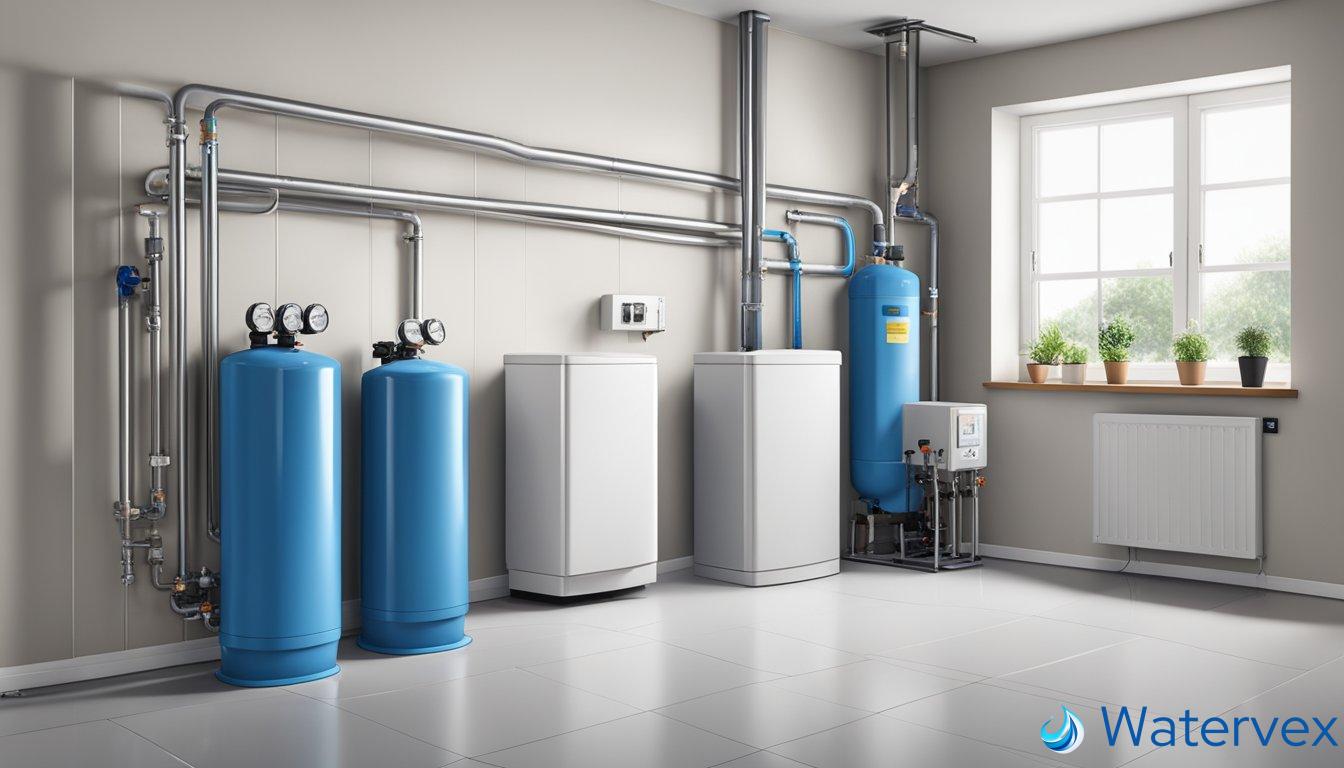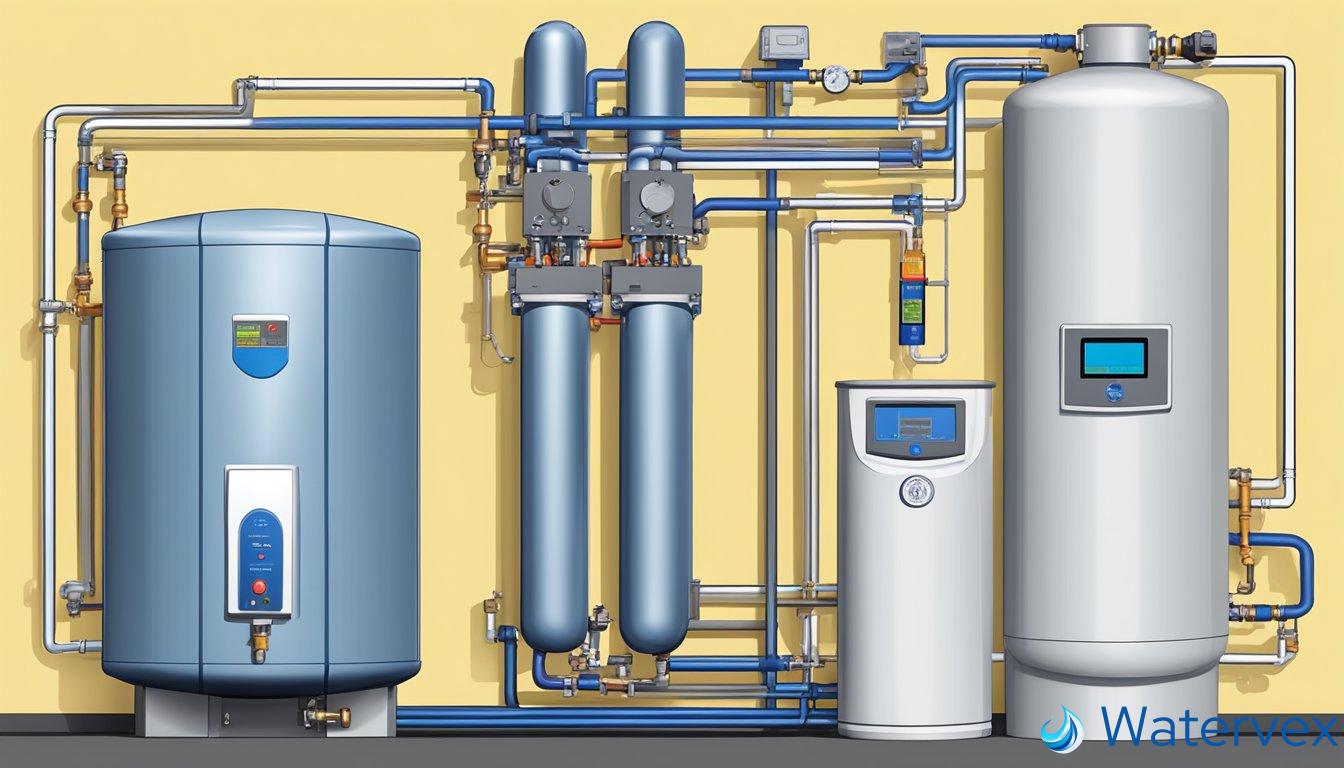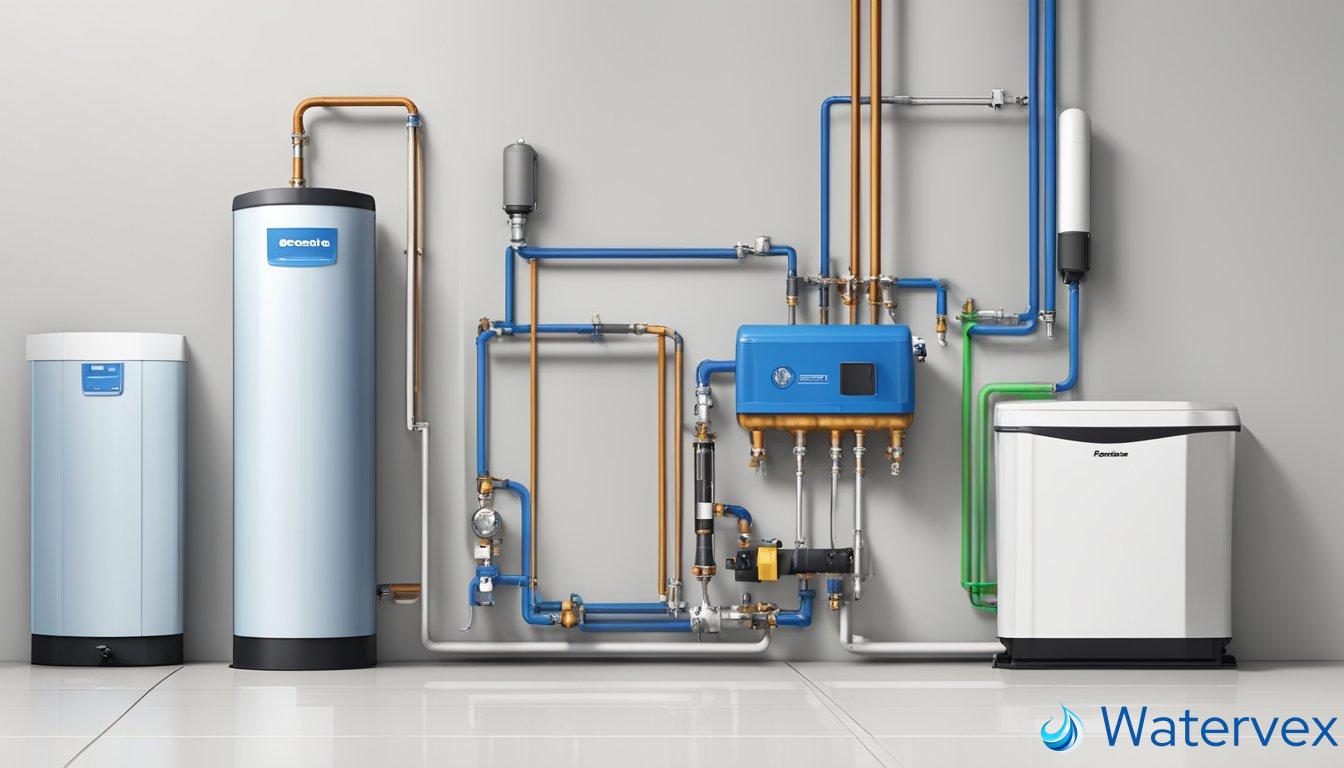If you’re considering pairing a water softener with your combi boiler, you may be wondering if the two are compatible. The answer is yes, you can indeed use a water softener with a combi boiler. Installing a water softener can be beneficial in managing hard water, which often leads to limescale buildup. Limescale can affect the efficiency of your boiler and central heating system, making your combi boiler work harder than it needs to.

Integrating a water softener into your existing combi boiler setup requires a thoughtful approach. Softened water not only prolongs the life of your boiler but also keeps its performance running smoothly. By reducing limescale, softened water can help maintain boiler efficiency and ensure your central heating system operates effectively. A proper installation takes into account the specific requirements of your boiler model, ensuring that all components work in harmony.
Key Takeaways
- A water softener is compatible with a combi boiler, helping to combat hard water issues.
- Softened water can prolong boiler life and enhance central heating efficiency.
- Correct installation is crucial to ensure your combi boiler and water softener work efficiently together.
Is It Possible to Install a Water Softener with a Combi Boiler?
When tackling the hard water problem, you might wonder if a water softener could play nice with your combi boiler. This is a valid concern, as hard water can lead to scale buildup, especially in the heat exchanger, which is the heart of your combi boiler.
A plumber specialized in both combi boilers and water softeners will tell you that installing a water softener can be beneficial for your central heating system. These devices are particularly adept at reducing the minerals like calcium and magnesium, which are the culprits behind that stubborn lime scale in your pipes and on your appliances.
Your boiler isn’t immune to these minerals either. Scale can reduce the efficiency of your boiler’s heating system. But with a water softener installed, the water feeding into your combi boiler is treated to remove these minerals. This not only helps prevent limescale deposits but can also improve the longevity and performance of your combi boiler.
Installation Considerations:
- Compatibility: Most water softeners will be compatible with your combi boiler system.
- Plumbing Requirements: A plumber may need to make some modifications to your existing plumbing to accommodate the water softener.
Benefits for Your Appliances & Heating System:
- Prevents Scale: Softened water reduces limescale buildup in pipes and on appliance surfaces.
- Enhances Efficiency: With less scale, your combi boiler can operate more efficiently, potentially lowering energy costs.
Remember, while connecting a water softener to a combi boiler is generally recommended, each setup might have its own complexity. Discussing your specific situation with a professional plumber who can advise on the best installation method for your heating system is a smart move. They can also ensure everything is up to code and functioning correctly, assuring you have safe and effective soft water flowing throughout your home.
Benefits of Using a Water Softener with a Combi Boiler System

Integrating a water softener with your combi boiler system can lead to noticeable improvements in heating efficiency and appliance longevity. Here’s how it can make a difference in your home.
Improved Efficiency and Performance
Using a water softener in tandem with a combi boiler can significantly diminish the occurrence of scale buildup in the boiler’s heat exchanger. By reducing the presence of calcium and magnesium in the water supply, the heat exchange process becomes more efficient. Moreover, softened water ensures that radiators distribute heat evenly, enhancing overall heating performance. Essentially, without the hard minerals encrusting the surfaces, the system operates as intended.
Extended Appliance Lifespan
The minerals found in hard water can be detrimental to home appliances, including the combi boiler. Over time, scale can accumulate inside the pipes and on critical components, causing wear and potential breakdowns. By connecting a water softener, you help to shield your appliances from the deleterious effects of calcium build-up, thus extending their lifespan. Think of it as a guardian for your home’s hot water systems, where smoother operation equals fewer replacements.
Lower Energy Bills and Reduced Maintenance Costs
Not only does a water softener aid in preserving the condition of heating elements and appliances, but it also offers financial benefits. Softened water necessitates less energy to heat, leading to lower energy bills. Additionally, the reduced scale means less maintenance is required, saving you money on potential repairs and servicing. Essentially, it’s an investment that curtails long-term costs associated with both energy consumption and boiler maintenance.
Integrating a Water Softener into an Existing Combi Boiler Setup

When considering the addition of a water softener to your combi boiler system, it’s crucial to understand the specifics of installation and the necessity for maintaining a non-softened drinking water supply, along with other compatibility and safety factors.
The Installation Process
To integrate a water softener with your combi boiler, a professional plumber should connect the unit to the inlet where the mains water enters your home. This ensures that hard water is treated before it reaches the heat exchange within the boiler, avoiding scale buildup that could lead to a leak in the pipes or reduced efficiency. It’s essential to have separate pipework for the soft water to prevent damage to the boiler’s internals, especially if it contains aluminium components, which can corrode in softened water.
- Identify the main water inlet.
- Install water softener to treat water before the boiler.
- Check if boiler components are compatible with soft water.
Requirement for Non-Softened Drinking Water Supply
UK homes typically require access to non-softened water for drinking, primarily due to the slightly corrosive properties of soft water from the ion exchange process that adds sodium. Therefore, you will need to ensure that there’s a separate supply, usually through a drinking water tap.
- Separate drinking water supply with unsoftened water.
- Dual supply setup to accommodate drinking and household water needs.
Important Considerations for Compatibility and Safety
Some boilers have internal parts made from stainless steel or aluminium that could be susceptible to damage from the high flow of soft water, even with an inhibitor. Before you proceed, confirm with your boiler manufacturer whether softened water is suitable for your model. It’s also recommended to maintain a low flow to the hot water tap to protect plumbing systems and extend the lifespan of your appliances.
- Confirm compatibility with the manufacturer.
- Maintain low flow rate to protect plumbing and appliances.

